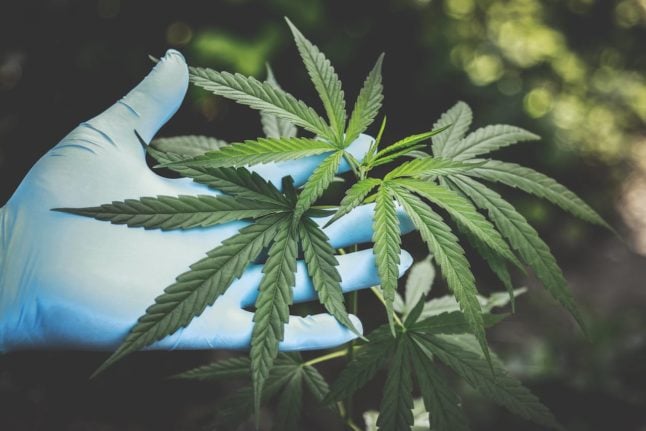The northern canton said in a statement that it would launch its WEED CARE study on September 15th, and that people could now sign up to be among the 370 participants.
“The scientific knowledge gained from this provides a basis for discussion for a future responsible cannabis policy,” Basel-Country said in a statement.
Cannabis can currently only be purchased legally in the wealthy Alpine nation for medical use, or for non-medical use when it contains below one
percent tetrahydrocannabinol (THC) — the component that gets recreational users high.
Purchasing hashish meanwhile is illegal regardless of the THC level.
Despite the bans, “cannabis use is widespread, user safety is uncertain and the black market is thriving,” the canton said said.
The canton’s trial marks the first of several pilot trials authorised by Switzerland’s Federal Office of Public Health (FOPH) for the regulated sale of
cannabis for non-medical purposes.
The aim of the 2.5-year study will be to examine “the effects of regulated cannabis sales on consumption behaviour and the health of cannabis users compared to the status quo in which cannabis is illegally available,” Basel-Country said.
Several other Swiss cantons and cities are planning similar studies, in a bid to determine various effects of cannabis regulation.
According to the FOPH, studies have shown that a majority of Swiss are open to the idea of fundamentally overhauling the country’s cannabis policy.
Participants in the Basel-Country study will need to be over the age of 18, be a resident of the canton and must already have consumed cannabis.
Six different cannabis products are to be involved, four in the form of dried cannabis flowers and two hashish products, each with different levels of
THC and of cannabidiol (CBD).
The products will be sold in pharmacies, and will be priced similarly to the going rate on the street, at between eight and 12 francs
per gramme.
“During the entire study, the participants will be regularly asked about their cannabis consumption behaviour and their physical and mental health,
among other things,” the canton said.



 Please whitelist us to continue reading.
Please whitelist us to continue reading.
Member comments